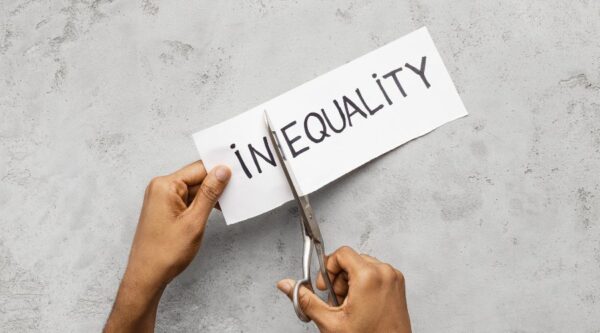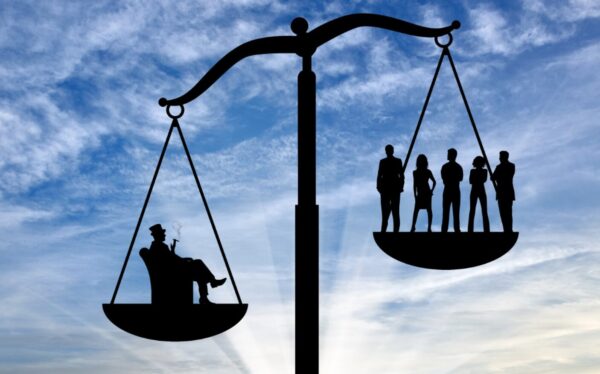Navigating Economic Inequality: Insights and Solutions
Economic inequality is a pressing issue that influences societies worldwide, characterized by the uneven distribution of wealth and income among individuals and groups. This imbalance can lead to significant social, economic, and political challenges. As disparities grow, it’s crucial to delve into the causes, impacts, and potential remedies for economic inequality to foster a more equitable future.
What is Economic Inequality?
Economic inequality occurs when resources, such as income and wealth, are distributed unevenly among people. This inequality can be observed in various forms, including income disparities, wealth gaps, and differences in access to essential services. These differences often translate into unequal opportunities and living standards.
Key Drivers of Economic Inequality:
- Globalization: While globalization has driven economic growth globally, it has also deepened inequalities. It benefits skilled workers and advanced economies but can widen the gap between high-income and low-income regions.
- Technological Disruptions: Technological advancements create high-value jobs in tech and finance but can displace lower-wage workers and automate routine tasks, leading to greater income disparities.
- Educational Gaps: Access to quality education often determines economic success. Those with better education and training secure higher-paying jobs, while others with fewer educational opportunities face limited economic mobility.
- Labor Market Dynamics: Shifts in labor markets, including the decline of stable, unionized jobs and the rise of gig work, have affected wage stability and job security, contributing to increased income inequality.
- Economic Policies: Taxation and social welfare policies significantly influence economic inequality. Policies that disproportionately benefit wealthy individuals and reduce support for low-income families can exacerbate economic gaps.
Implications of Economic Inequality:
- Social Discontent: Significant economic disparities can lead to social unrest and diminished social cohesion, fostering divisions and dissatisfaction within communities.
- Health Inequities: Economic inequality often correlates with disparities in health outcomes. Lower-income individuals typically face barriers to accessing quality healthcare, resulting in poorer health and reduced life expectancy.
- Educational Disparities: Inequality perpetuates itself through education, with children from affluent families having better educational resources and opportunities compared to their less fortunate peers.
- Economic Inefficiency: When large portions of the population lack access to necessary services and opportunities, it limits their potential contributions to the economy and hampers overall economic growth.

Tackling Economic Inequality: Strategies for Change:
- Progressive Tax Systems: Implementing progressive taxation, where higher earners pay a larger share of their income in taxes, can help redistribute wealth and fund public services that benefit everyone.
- Enhancing Education Access: Improving access to high-quality education and vocational training can help bridge the income gap by providing equal opportunities for skill development and career advancement.
- Expanding Healthcare Coverage: Ensuring equitable access to healthcare services can address health disparities and improve the overall quality of life for economically disadvantaged individuals.
- Strengthening Social Safety Nets: Bolstering social safety nets, such as unemployment benefits, affordable housing, and food assistance, can support individuals facing economic difficulties and reduce financial strain.
- Reforming Labor Markets: Advocating for fair wages, better working conditions, and protections for gig and freelance workers can help address income imbalances and promote economic stability.
- Boosting Economic Mobility: Policies that enhance economic mobility, such as affordable housing initiatives and job training programs, can help individuals and families advance economically.
Moving Forward:
As we advance, focusing on comprehensive strategies to reduce inequality will be vital for fostering a just and prosperous society. The path to reducing economic inequality involves collective effort and thoughtful policy-making to ensure that economic opportunities are accessible to all.
FAQs:
1. What is economic inequality? Economic inequality refers to the uneven distribution of income and wealth among individuals or groups in a society or across different nations. It highlights differences in financial resources, opportunities, and living standards.
2. What are the different forms of economic inequality? Economic inequality primarily includes income inequality (discrepancies in earnings) and wealth inequality (variations in ownership of assets like real estate and investments). Both forms affect individuals’ access to essential resources and opportunities.
3. How does globalization impact economic inequality? Globalization can widen economic gaps by benefiting skilled workers and advanced economies, while often disadvantaging low-income workers and developing nations. This uneven benefit can increase existing economic disparities.
4. What role does technology play in increasing economic inequality? Technological advancements can create lucrative opportunities in high-tech fields but may also lead to job displacement and automation for lower-wage positions. This can exacerbate income inequality between high-skill and low-skill workers.
5. Why is education crucial in addressing economic inequality? Education provides the skills needed for higher-paying jobs. Limited access to quality education often results in fewer economic opportunities, perpetuating cycles of inequality across generations.
6. How do changes in the labor market influence economic inequality? Changes such as the decline in traditional, unionized jobs and the rise of gig and freelance work can affect job security and wage stability, potentially increasing income inequality, especially for those in lower-wage sectors.
7. How do government policies affect economic inequality? Government policies on taxes, social welfare, and minimum wages play a significant role in shaping economic inequality. Progressive tax systems and robust social safety nets can help reduce disparities, whereas policies favoring the wealthy can deepen them.
8. What are the broader social effects of economic inequality? Economic inequality can lead to social discord, weaken community bonds, and exacerbate divisions. It can also contribute to disparities in health and education, impacting overall societal well-being.
9. In what ways does economic inequality impact health? People with lower incomes often face barriers to accessing quality healthcare, resulting in poorer health outcomes and reduced life expectancy. Economic inequality can thus lead to significant health disparities among different income groups.
10. What can be done to combat economic inequality? Addressing economic inequality involves a variety of strategies, including implementing progressive tax policies, expanding access to education and healthcare, enhancing social safety nets, reforming labor markets, and promoting policies that support economic fairness and mobility.
11. Is economic inequality a global concern? Yes, economic inequality is a global issue affecting both developed and developing countries. Although the specific causes and severity may vary, disparities in income and wealth are widespread across the world.
12. How can individuals help address economic inequality? Individuals can advocate for equitable policies, support organizations working to mitigate disparities, and participate in local initiatives aimed at improving educational and economic opportunities for underserved communities.




